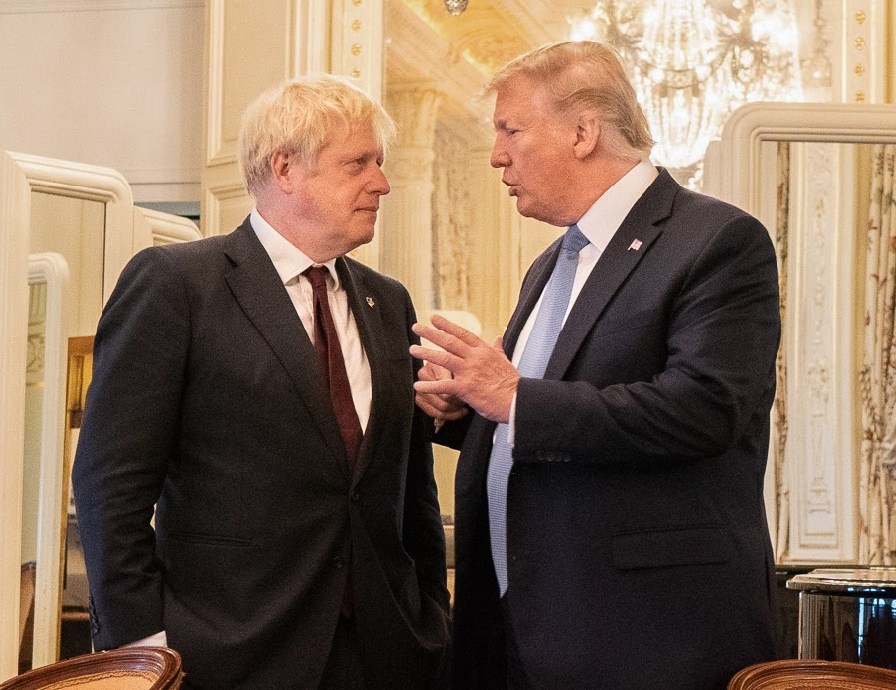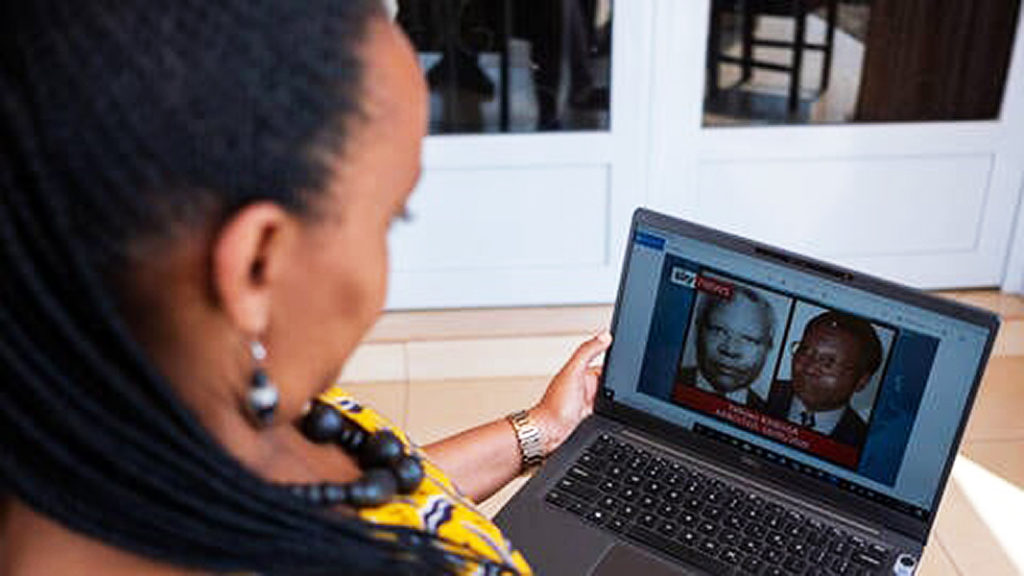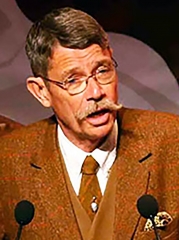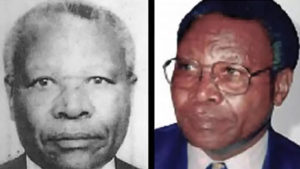Madame KABUGA,Waterloo: Quand des forces de sécurité ne respectent pas le deuil d'une famille
Madame Josephine Mukazitoni Kabuga
Madame Joséphine Mukazitoni est décédée le 03 février 2017. Elle fut enterrée à Waterloo le samedi 11 février 2017. Elle avait 75 ans. Voir pièces jointes (la carte-souvenir recto-verso)
Précisons que feu Madame Joséphine Mukazitoni est l'épouse de Félicien Kabuga ancien homme d'affaires rwandais d'avant 1994. Félicien Kabuga était un proche de l'ancien président Habyarimana par alliance. Aussi, après l'assassinat du président Habyarimana, les massacres qui ont suivi et la prise du pouvoir par le FPR, Félicien Kabuga s'exila comme presque tous les dignitaires hutus de l'ancien régime.
Dès la création du Tribunal Pénal International pour le Rwanda (TPIR) en 1996, Félicien Kabuga fut accusé d'avoir été le « financier du génocide » et recherché par ce tribunal. Jusqu' à sa clôture en 2014, le TPIR n'avait pas toujours mis la main sur Kabuga. Le Mécanisme pour les tribunaux Pénaux Internationaux (MITC) qui a repris le flambeau du TPIR coure toujours derrière Félicien Kabuga sans succès, malgré la prime de cinq millions de dollars que les USA ont offerts à quiconque aiderait à son arrestation. Mais certains analystes pensent plutôt que cet homme qui serait maintenant âgé de plus de 80 ans et qui était malade déjà en 1994 nécessitant des soins réguliers et particuliers serait déjà mort et donc que ni l'ONU ni le régime rwandais ne mettront jamais la main sur lui. Mais les équipes de recherches de l'ONU épaulées par les agents locaux sont toujours à pied d'œuvre et un budget est annuellement voté pour la recherche de Kabuga. C'est donc un job qu'ils n'entendent pas perdre même en sachant très bien que Félicien Kabuga ne serait plus de ce monde.
C'est l'épouse de ce personnage le plus recherché du monde qui vient de trouver la mort en Belgique où elle vivait depuis plusieurs années entourée de ses nombreux enfants.
Cette famille se plaint de subir des harcèlements depuis des années, il y a déjà quelque temps, l'une des filles de Kabuga nommée Claudine avait été perquisitionnée, alors qu'elle sortait de la maternité et avait retrouvé sa maison complètement retournée ! Mais à la mort de cette dame, les actes de harcèlement se sont multipliés de façon exponentielle. Tout au long de la semaine de deuil , la famille a été victime d'un acharnement des agents de sécurité et de la police au mépris du respect du deuil dont elle croyait avoir droit dans un pays démocratique qu'est la Belgique.
Le summum fut atteint la veille de l'enterrement. Le soir du 10 février vers 18h00, la maison Kabuga à Waterloo a été perquisitionnée par une quinzaine d'agents dont Michel Stassin, ancien commissaire de la Police Fédérale belge au Parquet de Bruxelles, aujourd'hui détaché au Rwanda et en Tanzanie (Arusha) pour spécialement traquer Félicien Kabuga , comme le montre sa carte de visite. La rumeur dit même qu'il aurait acquis la nationalité rwandaise, mais c'est à vérifier. Certains sont restés à l'extérieur et les autres sont entrés dans la maison. Ils ont fouillé toute la maison de fond en comble. L'un des agents (un black qui de toute évidence était un envoyé du régime de Kigali spécialement commis pour ça) filmait toute la scène des fouilles avec son téléphone. L'une des personnes présente l'a remarqué et la famille a exigé que la vidéo soit effacée. Quant à Michel Stassin il essayait de leur faire comprendre que le dossier de Félicien Kabuga était vide et que donc il devrait se livrer car il ne risquerait rien ! Pour impressionner et en gage de sa bonne foi, il a laissé sa carte de visite.
Apparemment les enquêteurs de l'ONU et de Kigali ainsi que des polices du monde qui sont sur les trousses de Félicien Kabuga auraient reçus des informations comme quoi ce dernier se serait déguisé en femme. Ceci est apparu lors de cette fouille-perquisition du vendredi 10 février 2017 au domicile de Madame Kabuga décédée à Waterloo. L'attention des agents qui connaissent toutes les filles de Kabuga a été attirée par une fille qui s'y trouvait mais qu'ils ne connaissaient pas. Ils ont alors insisté pour que son identité soit révélée et qu'elle soit fouillée, ce que la fille a refusé. Et comme la situation commençait à dégénérer, les occupants des lieux ont obtempéré et la fille s'est révélée être une des cousines des enfants de Kabuga.
N'ayant pas trouvé Félicien Kabuga chez son épouse, ils se sont déplacés vers la résidence de l'une de ses filles Winnie, ils ont fait le même cinéma mais en vain…
Un service de sécurité bien organisé
Le jour de l'enterrement samedi 11 février 2017, les organisateurs qui s'en doutaient, avaient déployé un service d'ordre et de sécurité conséquent. Il fallait en effet encadrer et canaliser une foule de plus d'un millier de personnes venues de tous les coins du monde et surtout veiller à ce qu'un incident n'ait lieu entre certaines des personnes antagonistes qui devaient se côtoyer. Mais surtout, il fallait éviter que des agents ouvertement envoyés par le régime du FPR profitent de cette occasion pour narguer la famille éprouvée. Ce fut le cas d'un certain Lewis Murahoneza alias Kigurube. Cet individu condamné par les Gacaca pour génocide, mais apparemment ayant été gracié en se rendant au Rwanda en 2013, (ce qui énerve certains rescapés : https://nkbnkb.wordpress.com/…/condamne-pour-genocide-au-rwanda-libre-a-kigali/) est devenu l'un des plus zélés agents du régime de Kigali en Belgique. Ces tentatives pour couvrir l'événement furent vaines car il fut gentiment éconduit et sommé de quitter même le territoire de la commune de Waterloo. Il en aurait été de même si les nouvelles recrues du FPR comme Albert Rukerantare avaient tenté le coup. Par contre certains des membres ou agents du FPR furent tolérés car ayant des liens avec la famille éprouvée ou encore jugés inoffensifs à cette occasion. Ce fut le cas par exemple de madame Pulchérie Nyinawase qui préside l'association des Intore (miliciens) du FPR vivant en Belgique et pompeusement dénommée « Diaspora Rwandaise de Belgique : DRB- Rwanda Rugali» ou de monsieur Emmanuel Ndagijimana a.k.a Idi Amin, ancien ambassadeur du FPR à Paris. Chapeau bas donc à ce service d'ordre et au protocole de la famille Kabuga qui tout en restant vigilent s'est aussi montré tolérant et au fait de la situation générale.
La messe dans une église archicomble a été célébrée par Monseigneur Servilien Nzakamwita , Evêque du Diocèse de Byumba la région natale de Félicien Kabuga et de son épouse. Tout un symbole quand on sait que Mgr Servilien Nzakamwita est un tutsi venu spécialement du Rwanda et qui ne peut donc pas être accusé d'être un « génocidaire », alors que Félicien Kabuga est lui accusé d'avoir commis le génocide contre les tutsi ! Monseigneur Sérvilien était d'ailleurs entouré d'autres prêtres rwandais de tous bords.
Ce service de sécurité de la famille Kabuga avait évidemment aussi un œil sur leurs homologues « officiels » que sont les agents des services de sécurité de l'Etat eux aussi présents en nombre.
C'est ainsi qu'il a été noté que, en face de l'église, des agents en civil avec une surveillance à distance étaient présents et au cimetière, d'autres étaient aussi présents dont une femme qui circulait au cimetière. Celle-ci était venue dans une voiture banalisée avec deux autres collègues. Elle a finalement quitté les lieux en courant pour rejoindre ses collègues qui tournaient en rond dans une voiture non loin de là.
De même à la salle de réception le soir, la police avec des voitures banalisées, a continué à tourner dans les environs et au moment ou la plupart rentrait vers 22h00, certaines voitures ont été arrêtées et fouillées, non sans demander benoitement aux occupant s'ils savaient où se trouverait le mari de la défunte ! Pour ces personnes dont la plupart venait d'autres pays, ces agissements aux méthodes peu respectueuses ont été particulièrement choquants. Ceux dont l'émoi nous est parvenu étaient loin de s'imaginer que des participants à un enterrement pouvaient être harcelés par ceux-là même qui étaient censés assurer l'ordre.
Conclusion
Les rwandais en général et la famille Kabuga en particulier, ont été choqués par ce show inutile et indécent des agents des services de sécurité belges et alliés. D'aucuns se demandent si cet acharnement au mépris du respect du deuil familial n'a pas des relents racistes. Une famille non africaine pourrait-elle subir un tel traitement de la part des mêmes agents ? Ce serait alors oublier que même les africains, comme les enfants et petits enfants de Félicien Kabuga, qui ont grandi ou sont nés en Belgique connaissent bien leurs droits et qu'ils n'hésiteront plus à les exiger ou à dénoncer ceux qui tenteraient de les fouler aux pieds. Ne pouvaient-ils pas opérer plus discrètement et en respectant le deuil de cette famille car sachant pertinemment bien qu'ils n'allaient pas mettre la main sur Félicien Kabuga à cette occasion (et à jamais)? A moins que ces services voulaient à tout prix faire le « buzz » avec un scandale pareil. Ce ne serait pas à leur honneur.
Sé : Pseudo
Jean- Charles Murego
 UK Prime Minister Boris Johnson and US President Donald Trump during the latter's visit in London
UK Prime Minister Boris Johnson and US President Donald Trump during the latter's visit in London 




